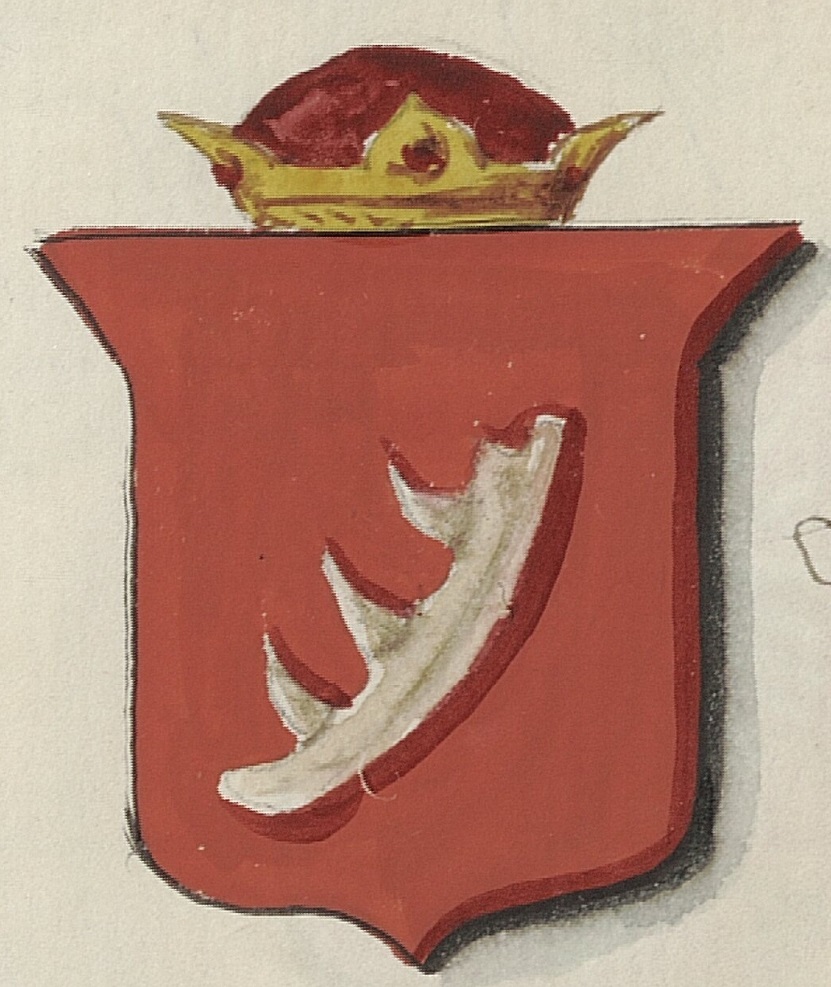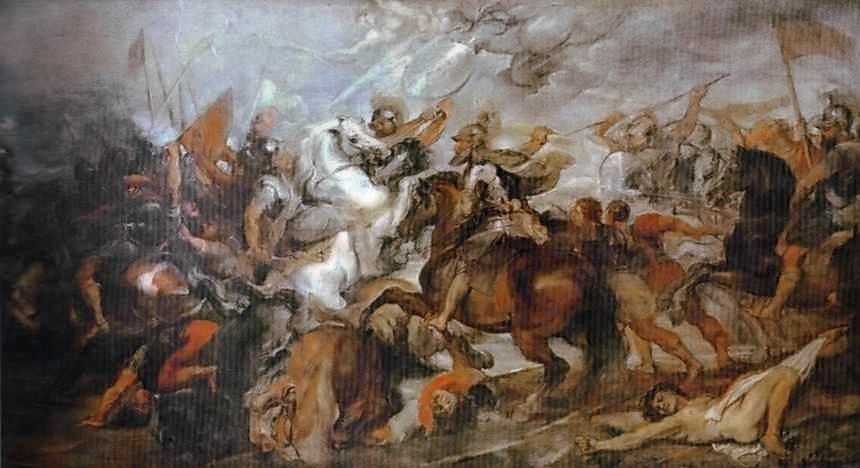|
Griselda Báthory
{{Hungary-bio-stub ...
Griselda (née Christine) Báthory (1569-1590) was a Hungarian and Polish noble, the daughter of Christopher Báthory, and third wife of Jan Zamoyski. At the time of her wedding with Zamoyski, her relative, Stephen Báthory, was king of Poland. Zamoyski, in turn, was one of Poland's chief political and military leaders, and their marriage tied him even more closely to his king's side. References * 1569 births 1590 deaths 16th-century Hungarian nobility Griselda Griselda Griselda, also spelled Grizelda, is a feminine given name from Germanic sources that is now used in English, Italian, and Spanish as well. According to the 1990 United States Census, the name was 1,066th in popularity among females in the Unit ... [...More Info...] [...Related Items...] OR: [Wikipedia] [Google] [Baidu] |
Christopher Báthory
Christopher Báthory (; 1530 – 27 May 1581) was voivode of Transylvania from 1576 to 1581. He was a younger son of Stephen Báthory of Somlyó. Christopher's career began during the reign of Queen Isabella Jagiellon, who administered the eastern territories of the Kingdom of Hungary on behalf of her son, John Sigismund Zápolya, from 1556 to 1559. He was one of the commanders of John Sigismund's army in the early 1560s. Christopher's brother, Stephen Báthory, who succeeded John Sigismund in 1571, made Christopher captain of Várad (now Oradea in Romania). After being elected King of Poland, Stephen Báthory adopted the title of Prince of Transylvania and made Christopher voivode in 1576. Christopher cooperated with Márton Berzeviczy, whom his brother appointed to supervise the administration of the Principality of Transylvania as the head of the Transylvanian chancellery at Kraków. Christopher ordered the imprisonment of Ferenc Dávid, a leading theologian of the Unitaria ... [...More Info...] [...Related Items...] OR: [Wikipedia] [Google] [Baidu] |
Jan Zamoyski
Jan Sariusz Zamoyski (; 19 March 1542 – 3 June 1605) was a Polish nobleman, magnate, statesman and the 1st '' ordynat'' of Zamość. He served as the Royal Secretary from 1565, Deputy Chancellor from 1576, Grand Chancellor of the Crown from 1578, and Great Hetman of the Crown from 1581. Zamoyski was the General Starost of the city of Kraków from 1580 to 1585, Starost of Bełz, Międzyrzecz, Krzeszów, Knyszyn and Tartu. An important advisor to Kings Sigismund II Augustus and Stephen Báthory, he was one of the major opponents of Bathory's successor, Sigismund III Vasa, and one of the most skilled diplomats, politicians and statesmen of his time, standing as a major figure in the politics of the Polish–Lithuanian Commonwealth throughout his life. Biography Childhood and education Jan Zamoyski was born on 19 March 1542 to Stanisław Zamoyski and Anna Herburt in Skokówka. He started his education in a school in Krasnystaw but when he was thirteen years old h ... [...More Info...] [...Related Items...] OR: [Wikipedia] [Google] [Baidu] |
Stephen Báthory
Stephen Báthory (; ; ; 27 September 1533 – 12 December 1586) was King of Poland and Grand Duke of Lithuania (1576–1586) as well as Prince of Transylvania, earlier Voivode of Transylvania (1571–1576). The son of Stephen VIII Báthory and a member of the Hungarian Báthory noble family, Báthory was a ruler of Transylvania in the 1570s, defeating another challenger for that title, Gáspár Bekes. In 1576, Báthory became the husband of Queen Anna Jagiellon and the third royal election, elected king of Poland. He worked closely with chancellor Jan Zamoyski. The first years of his reign were focused on establishing power, defeating a fellow claimant to the throne, Maximilian II, Holy Roman Emperor, and quelling rebellions, most notably, the Danzig rebellion, Gdańsk rebellion. He reigned only a decade, but is considered one of the most successful Monarchs of Poland, kings in Polish history, Polish and Lithuanian history, particularly in the military realm. His signal ... [...More Info...] [...Related Items...] OR: [Wikipedia] [Google] [Baidu] |
King Of Poland
Poland was ruled at various times either by dukes and princes (10th to 14th centuries) or by kings (11th to 18th centuries). During the latter period, a tradition of Royal elections in Poland, free election of monarchs made it a uniquely electable position in Europe (16th to 18th centuries). The first Polish ruler whose existence is not debatable was Mieszko I, Duke Mieszko I, who Christianization of Poland, adopted Christianity under the authority of Rome in the year 966. He was succeeded by his son, Bolesław I the Brave, who greatly expanded the boundaries of the Polish state and ruled as the first king in 1025. The following centuries gave rise to the mighty Piast dynasty, consisting of both kings such as Mieszko II Lambert, Przemysł II or Władysław I the Elbow-high and dukes like Bolesław III Wrymouth. The dynasty's rule over Poland ceased with the death of Casimir III the Great in 1370. In the same year, the Capetian House of Anjou became the ruling house with Louis I t ... [...More Info...] [...Related Items...] OR: [Wikipedia] [Google] [Baidu] |
1569 Births
Year 1569 ( MDLXIX) was a common year starting on Saturday of the Julian calendar. Events January–March * January 11 — The first recorded lottery in England begins and continues, nonstop, at the west door of St Paul's Cathedral for almost five months. Each share costs ten shillings, and proceeds are used to repair harbours, and for other public works. * February 26 — Pope Pius V issues a papal bull expelling all Jews from Italian and French territories. * March 13 – Battle of Jarnac: Royalist troops under Marshal Gaspard de Tavannes surprise and defeat the Huguenots under the Prince of Condé, who is captured and murdered. A substantial proportion of the Huguenot army manages to escape, under Gaspard de Coligny. April–June * April 15 – Burmese–Siamese War: In what is now Thailand, Mahinthrathirat reclaims the throne of the Ayutthaya Kingdom upon the death of King Maha Chakkraphat. * May 6 – England's St. Paul Cathedral lottery ends with the selection o ... [...More Info...] [...Related Items...] OR: [Wikipedia] [Google] [Baidu] |
1590 Deaths
Events January–March * January 6 – García Hurtado de Mendoza, 5th Marquis of Cañete, García Hurtado de Mendoza becomes the new List of viceroys of Peru, Viceroy of Peru (nominally including most of South America except for Brazil). He will serve until 1596. * January 10 – Construction of the Livorno#Fortezza Nuova, Fortezza Nuova around the city of Livorno begins in Italy in the Grand Duchy of Tuscany on the orders of Ferdinando I de' Medici, Grand Duke of Tuscany and continues for more than 14 years. * January 25 – Luis de Velasco, 1st Marquess of Salinas del Río Pisuerga, Luis de Velasco y Castilla, Marquess of Salinas, becomes the new List of viceroys of New Spain, Viceroy of New Spain, a colony comprising most of Central America, Mexico and what is now a large part of the southwestern United States. Velasco will govern until 1595, and then again from 1607 to 1611. * February 3 – Peter Ernst I von Mansfeld-Vorderort, the German-born c ... [...More Info...] [...Related Items...] OR: [Wikipedia] [Google] [Baidu] |
16th-century Hungarian Nobility
The 16th century began with the Julian year 1501 (represented by the Roman numerals MDI) and ended with either the Julian or the Gregorian year 1600 (MDC), depending on the reckoning used (the Gregorian calendar introduced a lapse of 10 days in October 1582). The Renaissance in Italy and Europe saw the emergence of important artists, authors and scientists, and led to the foundation of important subjects which include accounting and political science. Copernicus proposed the heliocentric universe, which was met with strong resistance, and Tycho Brahe refuted the theory of celestial spheres through observational measurement of the 1572 appearance of a Milky Way supernova. These events directly challenged the long-held notion of an immutable universe supported by Ptolemy and Aristotle, and led to major revolutions in astronomy and science. Galileo Galilei became a champion of the new sciences, invented the first thermometer and made substantial contributions in the fields of ... [...More Info...] [...Related Items...] OR: [Wikipedia] [Google] [Baidu] |
Báthory Family
The House of Báthory () was an old and powerful Hungarian nobility, Hungarian noble family of the Gutkeled clan. The family rose to significant influence in Central Europe during the Late Middle Ages, holding high military, administrative and ecclesiastical positions in the Kingdom of Hungary. In the early modern period, the family produced several Prince of Transylvania, Princes of Transylvania and one King of Poland and Grand Duke of Lithuania (Stephen Báthory). Origins The Báthory family belonged to the ''Gutkeled'', a clan of Kingdom of Hungary, Hungarian Kingdom nobles, which traced its descent to the Swabian brothers ''Gut'' and ''Kelad'', who immigrated into the Kingdom of Hungary from the castle ''Stof'' (probably Staufen, Germany, Staufen im Breisgau or Hohenstaufen in Württemberg) during the reign of Peter Urseolo of Hungary, King Peter (reigned 1038–1046), who himself was partly of Venice, Venetian descent.Simon Kezai, Lázló Veszprémy, Frank Schaer (ed.), ' ... [...More Info...] [...Related Items...] OR: [Wikipedia] [Google] [Baidu] |





